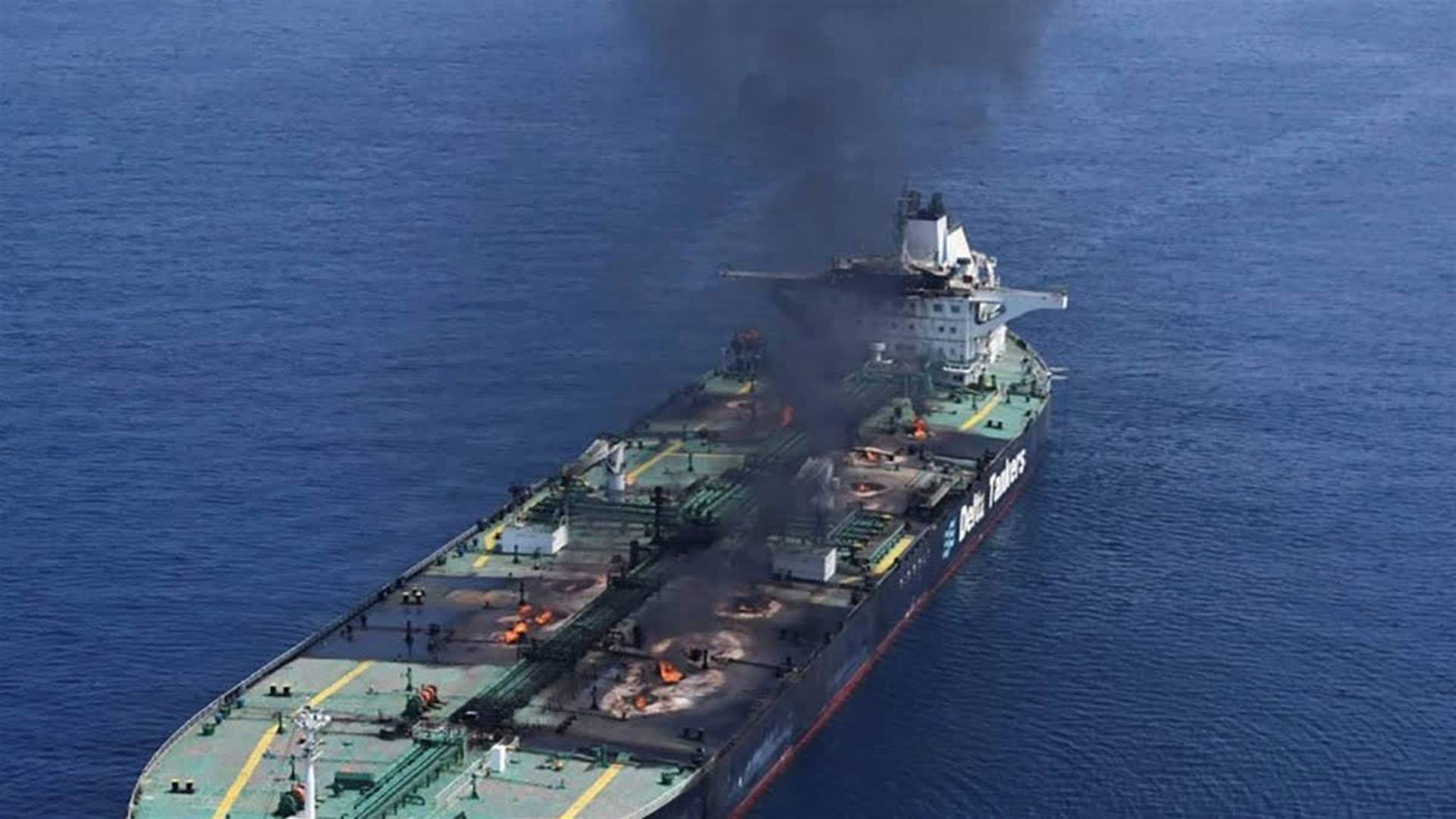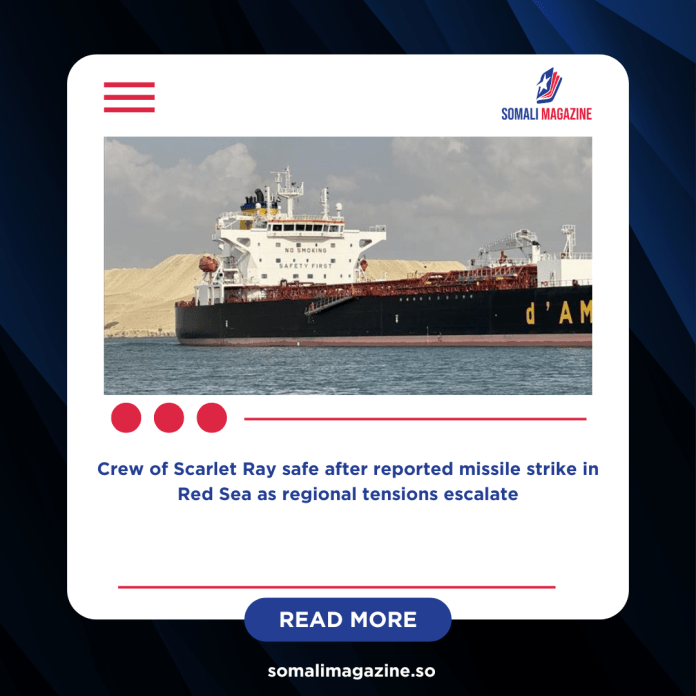Facebook Twitter (X) Instagram Somali Magazine - People's Magazine
Yemen’s Houthi movement said on Monday that it had launched a missile at the Israeli-owned oil tanker Scarlet Ray near the Saudi Arabian Red Sea port city of Yanbu. The ship, which sails under a Liberian flag, reported hearing a loud explosion close by, but no damage was caused, and its crew remained safe. The tanker has since continued on its journey.
The United Kingdom Maritime Trade Operations (UKMTO) confirmed the report, noting that the crew described “a splash in close proximity from an unknown projectile and a loud bang.” British maritime security firm Ambrey also assessed the situation and said the tanker fit the profile of ships the Houthis have previously targeted because of its Israeli ownership.
Since 2023, the Houthis have stepped up attacks on commercial vessels in the Red Sea that they believe are linked to Israel. The group says these strikes are carried out in support of Palestinians in Gaza. While many of their attempts have been intercepted, several ships have been struck in recent months, raising alarm over security in one of the world’s busiest trade routes.
The Red Sea is a critical passage for international shipping. It connects the Mediterranean Sea to the Indian Ocean through the Suez Canal and carries a significant share of the world’s oil and goods. Attacks on this route have forced some shipping companies to divert vessels around Africa, which adds time and costs to global trade. Security experts warn that if such incidents continue, the effects could ripple across international supply chains and energy markets.

The Houthis are an armed group that controls much of northern Yemen, including the capital, Sanaa. They are aligned with Iran and have been in conflict with Yemen’s internationally recognized government since 2014. Their seizure of power triggered a regional war, leading Saudi Arabia and its allies to launch a military campaign in 2015 to try to restore the government. The conflict has devastated Yemen, leaving millions in need of food, medicine, and humanitarian aid.
Over the years, the Houthis have expanded their military capabilities, using missiles, drones, and explosive-laden boats to strike both domestic and international targets. They have frequently launched operations in the Red Sea, often claiming that their attacks are aimed at defending Yemen and supporting Palestinians. Saudi Arabia and its partners have previously intercepted many such attempts, preventing large-scale damage.
Although the UKMTO confirmed that the Scarlet Ray reported an explosion nearby, it did not officially name the Houthis as being behind the attack. Investigations are ongoing. However, the group has claimed responsibility, and its record of targeting Israeli-linked vessels makes the link highly likely. International analysts view this as part of the Houthis’ broader campaign to pressure Israel and its allies through maritime disruption.
The latest incident underscores the growing risks to global shipping in the Red Sea. Even though the Scarlet Ray continued safely on its journey, the missile launch serves as a reminder of the volatility in the region. Experts warn that repeated attacks increase the likelihood of casualties, major oil spills, or disruptions that could significantly affect the global economy. Naval forces from the United States, Europe, and regional allies are already deployed in the area to help secure the waterway, but the threat remains.
As the war in Gaza continues and tensions across the Middle East rise, the Red Sea is expected to remain a hotspot for conflict. The Houthis have shown no sign of stopping their maritime campaign, and each new incident highlights the fragile balance between regional rivalries and the safety of global trade routes. For now, the Scarlet Ray has avoided harm, but the episode is another warning of how quickly the situation could escalate.

